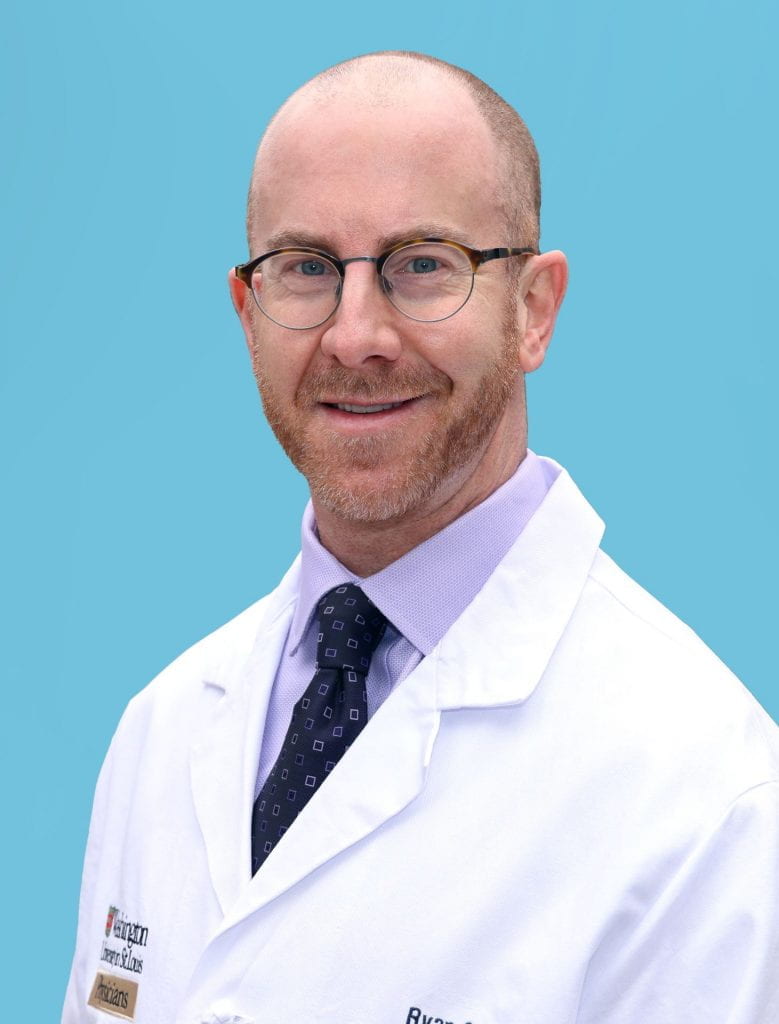
In addition to outstanding clinical training, Washington University offers unparalleled research opportunities. Whether you are interested in molecular or cell biology, complex systems analysis, animal models of laparoscopic surgery, resident education, cancer outcomes, population health sciences, global health care and outreach, or any other discipline related to surgery, we can tailor a research experience for you with world-class mentors. Our mission is for our trainees to be leaders for the next generation of academic surgery.
The research opportunities during residency training in the Department of Surgery are broad and diverse. Most general surgery residents spend two to three years of dedicated research time during their residency training. Usually, this is undertaken between their PGY-I and PGY-III years, but scheduling of this experience is flexible. Research during the surgical residency years is optional, but the majority of residents take advantage of the opportunity to expand their academic interests for their career advancement.
The division/section links on the right will take you to descriptions of faculty members’ recent publications and research interests/laboratories (if applicable). Residents can pursue research opportunities in laboratories in the surgical, basic science or other clinical science departments at Washington University. Please note that residents are not limited to laboratory work. Many choose to engage in clinical research and participate in Washington University’s K12 Clinical Oncology Research Scholar program. Additionally, some have chosen to obtain additional advanced degrees such as a master of population health sciences (MPHS) degree for expertise in clinical outcomes research, a master of public health (MPH) degree, or a master of business administration (MBA) degree at the Olin School of Business at Washington University during the research years.
A particularly unique resource in our department is the Division of Public Health Sciences, led by Dr. Graham Colditz, with world-class opportunities for scholarly pursuits in epidemiology and public health. House officers also may spend their research years with an investigator at another university or at the National Institutes of Health (NIH). Importantly, the department has multiple training grants to support resident research (see below).
Since 1998, funding from the National Institutes of Health (NIH), non-federal and corporate-supported grants to the Department of Surgery has tripled. Clinical study income also has grown, and the Department of Surgery consistently ranks near the top of departments of surgery in NIH support.
Importantly, funding is available for laboratory expenses and salary for all residents during their research years. The department has several NIH-sponsored training grants in surgical oncology, cardiothoracic surgery and pediatric surgery. This, however, does not restrict residents to performing research in these three fields. All surgical sections have guaranteed funding to support residents performing specialized clinical and basic science research within their division. As part of the research training, all residents will learn grant writing skills through which many residents have applied for and won prestigious research competitions from national surgical societies. Residents also are eligible to apply for medical school loan repayment programs through the National Institutes of Health, which may yield an additional $35,000 a year for each year spent in laboratory research, in addition to regular salary support.
Residents also are free to moonlight during the research years, provided it does not interfere with their laboratory responsibilities. (See Moonlighting Policy for residents.)
It is my responsibility to ensure that each resident finds a research opportunity that meets their academic and career goals. In that regard, I meet with every resident early and often during the first several years of their training to begin this process and move it forward. I also meet with residents regularly during their research years to ensure continued progress.
We encourage you to browse our website to see the breadth of ongoing research opportunities in our Department.
Ryan C. Fields, MD
Director of Resident Research